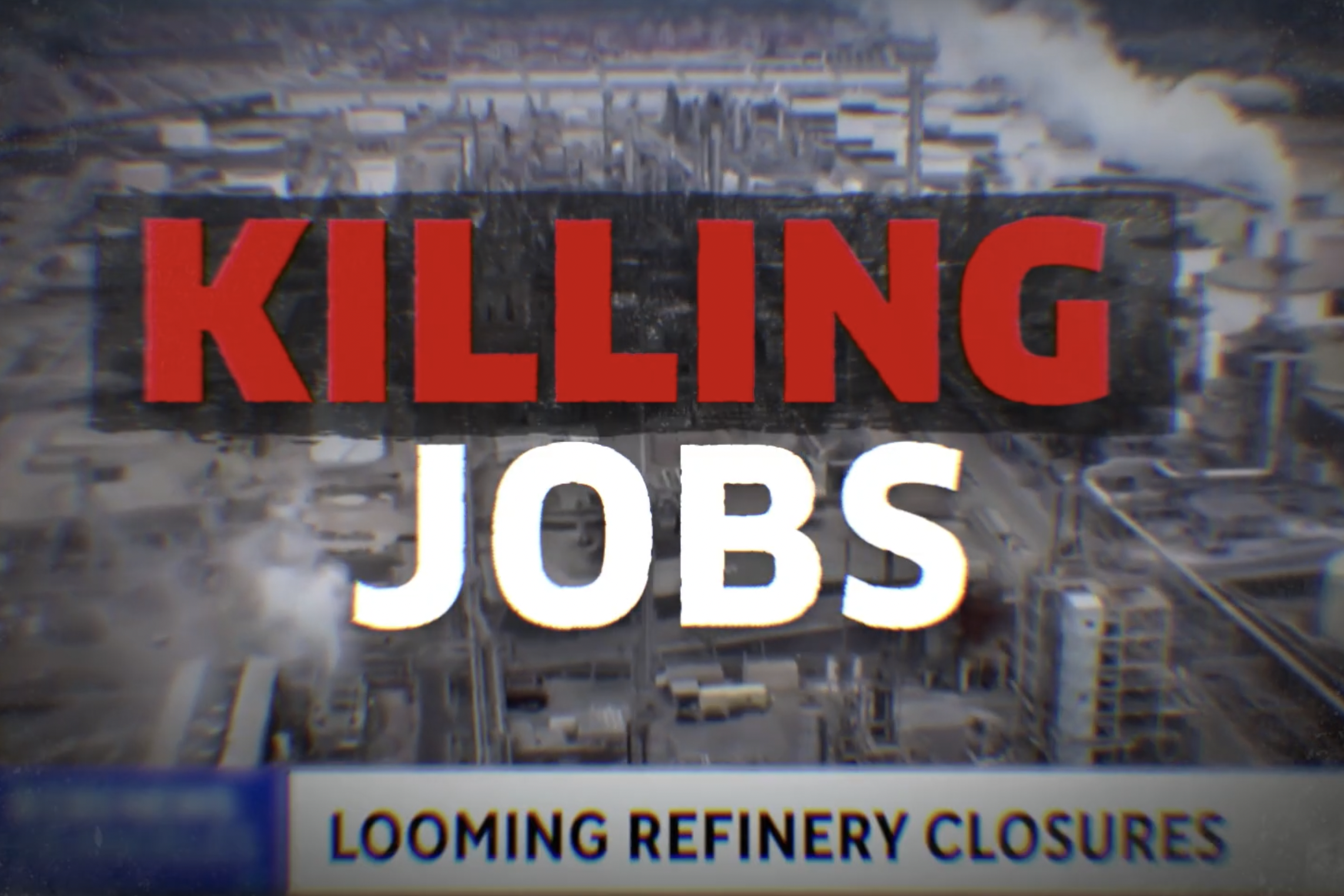What is the renewable fuel standard?
The Renewable Fuel Standard (RFS) is a decades-old federal regulation mandating a minimum amount of renewable fuel to be blended into U.S. transportation fuel. In the wake of Hurricane Katrina, Congress established the RFS aimed to decrease U.S. dependency on foreign oil, expand the blending of ethanol in the gasoline supply and create markets for biofuels to diversify America’s energy mix, lower consumer gas prices, and reduce greenhouse gas emissions. However, for over a decade, unrealistic volume mandates under the RFS have contributed to refinery closures and triggered higher consumer gas prices, without appreciably increasing the amount of ethanol in gasoline, thereby undermining the law’s original intention.
How does Congress determine compliance with the RFS?
The Environmental Protection Agency (EPA) administers the RFS program by setting annual renewable volume obligations (RVOs) — the minimum amount of renewable fuel that must be blended into gasoline. Compliance is regulated through Renewable Identification Numbers (RINs), credits generated when biofuel is blended with gasoline or diesel. Ethanol, the most common biofuel, cannot be blended into gasoline at a refinery and shipped in a pipeline. As a result, it is blended into gasoline just before distribution to gas stations due to its corrosive nature.
Can independent refineries blend ethanol?
No. Independent refineries cannot blend ethanol, because ethanol-mixed gasoline cannot be shipped out of a refinery in a pipeline. Given this reality, , they must purchase surplus RINs from blenders to meet their RVOs. This reliance on buying RINs for compliance puts independent refineries at a financial disadvantage because they typically purchase RINs from their competitors, including multinational oil conglomerates that operate in every leg of the supply chain and, as a result, can generate more RINs then they need through their blending and retail arms.
How are RINs priced?
RINs are traded with absolutely no regulation and their prices are easily influenced by speculation about potential changes in government mandates. Since the EPA keeps mandating unachievable volume requirements for ethanol, it causes a scarcity of ethanol RINs, allowing biofuel blenders that control supply and often have no RFS requirement, along with third-party traders, to drive up prices exponentially. When the EPA fails to adjust RVOs, the mismatch between true and mandated demand inflates RIN prices.
Why does the supply of RINs not increase with the demand?
Blenders and Wall Street traders profit from high RIN prices and have no incentive to increase supply, which would lower their profits. As a result, independent domestic refiners bear the brunt of inflated RIN costs, which have driven many refineries out of business. For example, in 2018, the largest oil refinery on the East Coast filed for bankruptcy due to high RIN prices, and in 2020, the prospect of runaway RIN costs, coupled with COVID’s impacts, led eight more independent refineries shut down for the same reason.
Has the RFS achieved its goals?
Quite the contrary. Instead of strengthening energy security and reducing dependence on foreign oil, the Bush-era mandate has contributed to several refinery closures, costing thousands of working-class jobs, devastating the communities they served, and undermining American energy security. Foreign biofuel importers have profited from the policy, further undermining national energy independence. Consumers have faced higher gas prices, paying an additional 15-30 cents per gallon, amounting to $30 billion annually.
What are some policies that can be adopted to fix the RFS?
Several policy changes could help stabilize RIN prices and address the issues caused by the current RFS framework. The EPA has the authority to implement the following measures:
-
Adjust the Ethanol Mandate: Lower the ethanol mandate to align with engine and infrastructure capabilities, which would mean keeping gasoline-ethanol concentrations below 10% for the foreseeable future. The federal biofuel mandate should not exceed the government’s projected ethanol demand for a given year. This change would significantly reduce RIN costs, lower consumer fuel prices, and protect the long-term viability of domestic refiners. If ethanol consumption grows, it will also allow for the requirements to grow in a more cost effective manner.
-
Establish & Allow Refiners to Purchase Fixed-Cost RINs: Allow refiners to purchase fixed, low-price RINs or “waiver credits” for the ethanol requirement if cost-effective RINs are unavailable in the market. This mechanism, similar to what is used for cellulosic biofuel, could also generate revenue to support biofuel marketing.
-
Waive Requirements to Prevent Economic Harm: Use the authority granted by law to waive national RFS requirements in cases of “severe economic harm.” States like Pennsylvania, Texas, New Mexico, and Delaware have previously requested such action due to unreasonable RVOs.
-
End Illegal Reallocation: Stop the practice of “reallocation,” where the EPA increases RFS requirements for refiners that do not receive Small Refinery Exemptions (SREs). Since SREs do not reduce biofuel demand, reallocation only raises RIN costs and increases reliance on foreign biofuels.
-
Shift the Point of Obligation: Change the compliance obligation under the RFS to the blenders who control the RIN market. Although the EPA is supposed to review the program annually and make necessary improvements, this process has been neglected. Grant Tradeable RINs for Exports: Allow RINs tied to ethanol that must be retired if the ethanol is exported to be used for RFS compliance. This policy would support U.S. foreign and commercial policy objectives while lowering RIN costs by adding more credits to the market.


